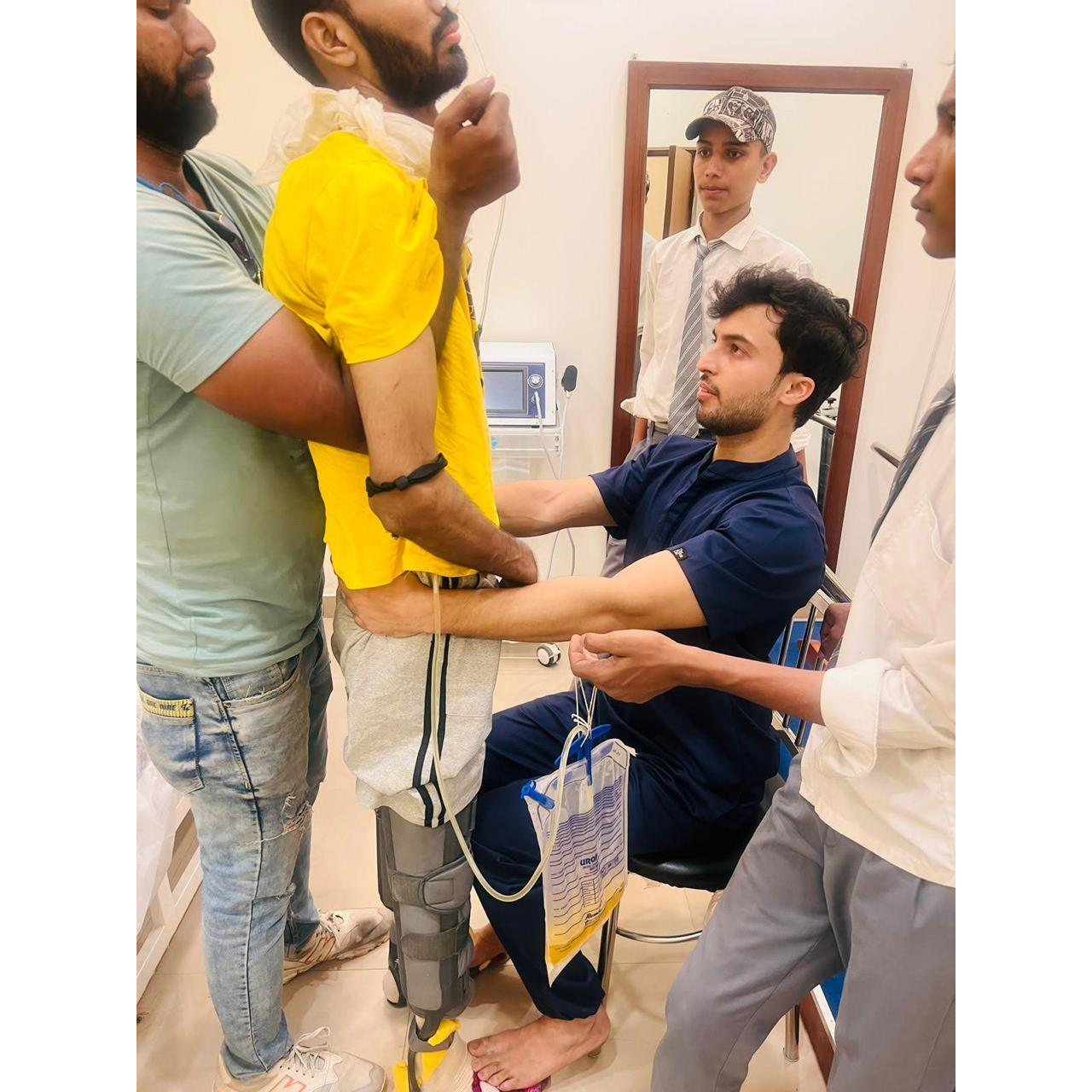



Motor Neuron Disease (MND) is a serious condition that affects the nervous system, leading to progressive weakness and disability. while the disease is complex and can be challenging to understand, this blog will break it down into simple terms and focus on how advanced physiotherapy techniques are helping people manage the symptoms and improve their quality of life. What is Motor Neuron Disease? MND is a group of diseases that affect the motor neurons – the nerve cells that control voluntary muscles. These muscles are those you consciously control, such as those in your arms, legs, and even those responsible for breathing and swallowing. When motor neurons are damaged, they lose the ability to send signals to muscles, leading to muscle weakness and atrophy (shrinking). the most well-known type of MND is amyotrophic lateral sclerosis (ALS), also known as lou gehrig's Disease, but there are other types like primary lateral sclerosis (PLS) and progressive muscular atrophy (PMA). Symptoms of MND symptoms vary from person to person but generally include: muscle weakness: this can affect various parts of the body, starting with the hands, feet, or face. twitching muscles (fasciculations): small, involuntary movements under the skin. difficulty with speaking, swallowing, and breathing as the muscles responsible for these tasks weaken. loss of coordination and balance. MND tends to progress over time, and while there is currently no cure, there are treatments and strategies to help manage the symptoms and improve the quality of life for people with the disease. The Role of Physiotherapy in Managing MND Physiotherapy plays a crucial role in the management of MND, helping individuals maintain mobility, reduce pain, and retain as much independence as possible. While physiotherapy cannot stop or reverse the disease, it can significantly slow down the loss of physical function and help individuals manage their symptoms. Here are some advanced physiotherapy techniques that are being used to treat MND patients in our Physionautics clinic Physionautics Clinic, we are committed to providing advanced physiotherapy techniques to support individuals living with motor neuron disease (MND). Our expert team uses neuromuscular re-education, including Functional Electrical Stimulation (FES), to stimulate muscle function and improve mobility. We also offer personalized strengthening and stretching exercises to maintain flexibility and prevent stiffness, along with postural training and the use of assistive devices to enhance independence. In later stages of MND, our physiotherapists focus on breathing exercises to maximize lung capacity and incorporate aquatic therapy for gentle, effective muscle strengthening. Additionally, we teach energy conservation techniques to help patients manage fatigue and adapt their daily routines. we understand that MND impacts both physical and emotional well-being, which is why we provide psychosocial support as part of our holistic care approach. At Physionautics Clinic, we work closely with patients to address both the physical challenges of MND and the emotional toll it can take. By combining cutting-edge treatments with compassionate care, we help individuals maintain mobility, comfort, and independence for as long as possible. If you or a loved one is dealing with MND, we invite you to reach out to us and discover how our personalized care can make a difference. If you or a loved one is living with Motor Neuron Disease (MND) and looking for expert physiotherapy care, we invite you to visit Physionautics Clinic in Vasant Vihar. Conveniently located for residents of Rohini, Pitampura, Shalimar Bagh, Punjabi Bagh, Dwarka, Janakpuri, and Saket, our clinic offers advanced treatments to help manage MND symptoms and improve quality of life. We also provide home care services, bringing our expert physiotherapy directly to your doorstep. Contact us today to learn more and schedule a consultation – we’re here to support you every step of the way.
We hate spam too.